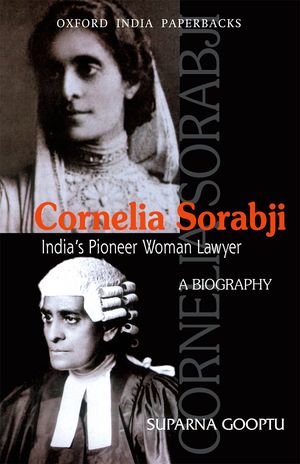We are now closed for the Christmas and New Year period, returning on Monday 5th January 2026. Orders placed during this time will be processed upon our return on 5th January.

Acknowledged as India's first woman barrister, Cornelia Sorabji's (1866-1954) life and activities have always perplexed public intellectuals and Indian nationalists. Sorabji occupies a significant place in Indian history as she played a vital role in opening up the legal profession to women much before they were formally allowed to plead before the courts of law. Through a careful analysis of Sorabji's writings, personal correspondence, and other writings, Suparna Gooptu unveils the life of this revolutionary woman. Often condemned as an 'imperial surrogate', Sorabji's life depicts both internal and external turmoil of a colonial subject who, in trying to negotiate her dual subjectivity to colonialism and societal patriarchy, was left with little space of her own.